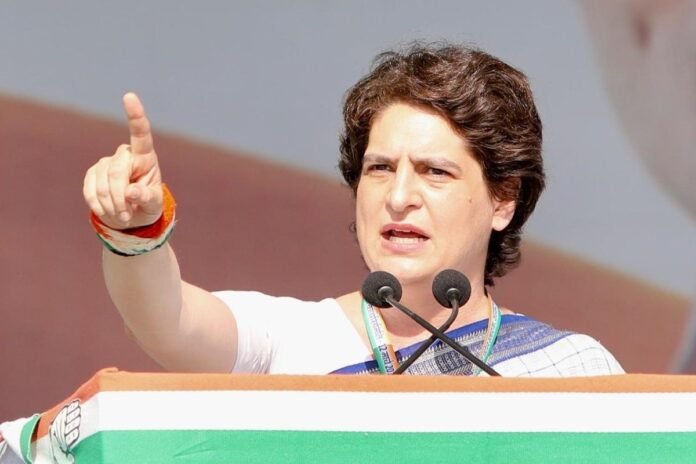
A social media post claiming that Miraya Vadra, the daughter of Congress leader Priyanka Gandhi Vadra, owns a ₹3,000-crore property has prompted the Himachal Pradesh (HP) police to register a First Information Report (FIR). The post, which quickly went viral, has stirred considerable controversy and raised questions about the veracity of the claims and the motives behind them.
The allegations surfaced on various social media platforms, with a specific focus on Miraya Vadra, a young student largely out of the public eye. The post suggested that she possessed a property worth an astronomical sum, attributing the wealth to alleged corrupt practices by her politically influential family. Given the high-profile nature of Priyanka Gandhi Vadra and her husband Robert Vadra, such claims have a significant impact, generating widespread public interest and media scrutiny.
Following the circulation of these allegations, the Gandhi-Vadra family has categorically denied the claims, labeling them as baseless and politically motivated. Priyanka Gandhi Vadra, in a statement, emphasized the ethical upbringing of her children and condemned the attempts to drag her family into fabricated controversies. She called the post a malicious attempt to defame her family and distract from pressing political issues.
The swift action by the Himachal Pradesh police to register an FIR indicates the seriousness with which the authorities are treating this matter. The FIR was lodged under various sections of the Indian Penal Code (IPC), including those pertaining to defamation, dissemination of false information, and the use of electronic communication for malicious intent. The police have begun an investigation to trace the origin of the post, identify those responsible for spreading the false information, and determine the underlying motives.
This incident has sparked a broader debate about the role of social media in disseminating unverified information and its potential to cause harm. In an era where information spreads rapidly and often uncontrollably, the challenge of distinguishing fact from fiction becomes ever more critical. The case involving Miraya Vadra highlights the vulnerabilities faced by public figures and their families in the digital age.
Experts in cyber law and digital communication have weighed in on the issue, underscoring the need for stringent regulations and better mechanisms to counter the spread of fake news. Social media platforms, while offering a space for free expression, also bear the responsibility of ensuring that their services are not misused for spreading misinformation. The current legal framework in India, while robust, often struggles to keep pace with the rapid evolution of digital communication technologies.
Political analysts see this episode as part of a larger pattern of targeting prominent figures to achieve political ends. The timing of the post coincides with crucial political developments and elections in several states, suggesting a deliberate attempt to distract and defame. The Gandhi-Vadra family, given its significant political influence and history, is often at the center of such controversies.
For the general public, this incident serves as a reminder to critically evaluate the information encountered on social media. The allure of sensational headlines and viral posts can often overshadow the need for verified and credible sources. Public awareness and digital literacy are essential in combating the spread of false information.
As the investigation by the Himachal Pradesh police progresses, more details are expected to emerge. The authorities are likely to collaborate with cybercrime units and social media companies to trace the origins of the post and hold those responsible accountable. This case could potentially set a precedent for how similar incidents are handled in the future, emphasizing the importance of swift legal action and the need for a coordinated approach to tackle misinformation.
In addition, the social media post claiming that Miraya Vadra owns a ₹3,000-crore property has not only led to an FIR by the Himachal Pradesh police but also highlighted the broader issues of misinformation and the ethical responsibilities of digital platforms. As the investigation unfolds, it will be crucial to address these challenges to safeguard individuals from unfounded allegations and preserve the integrity of public discourse.
